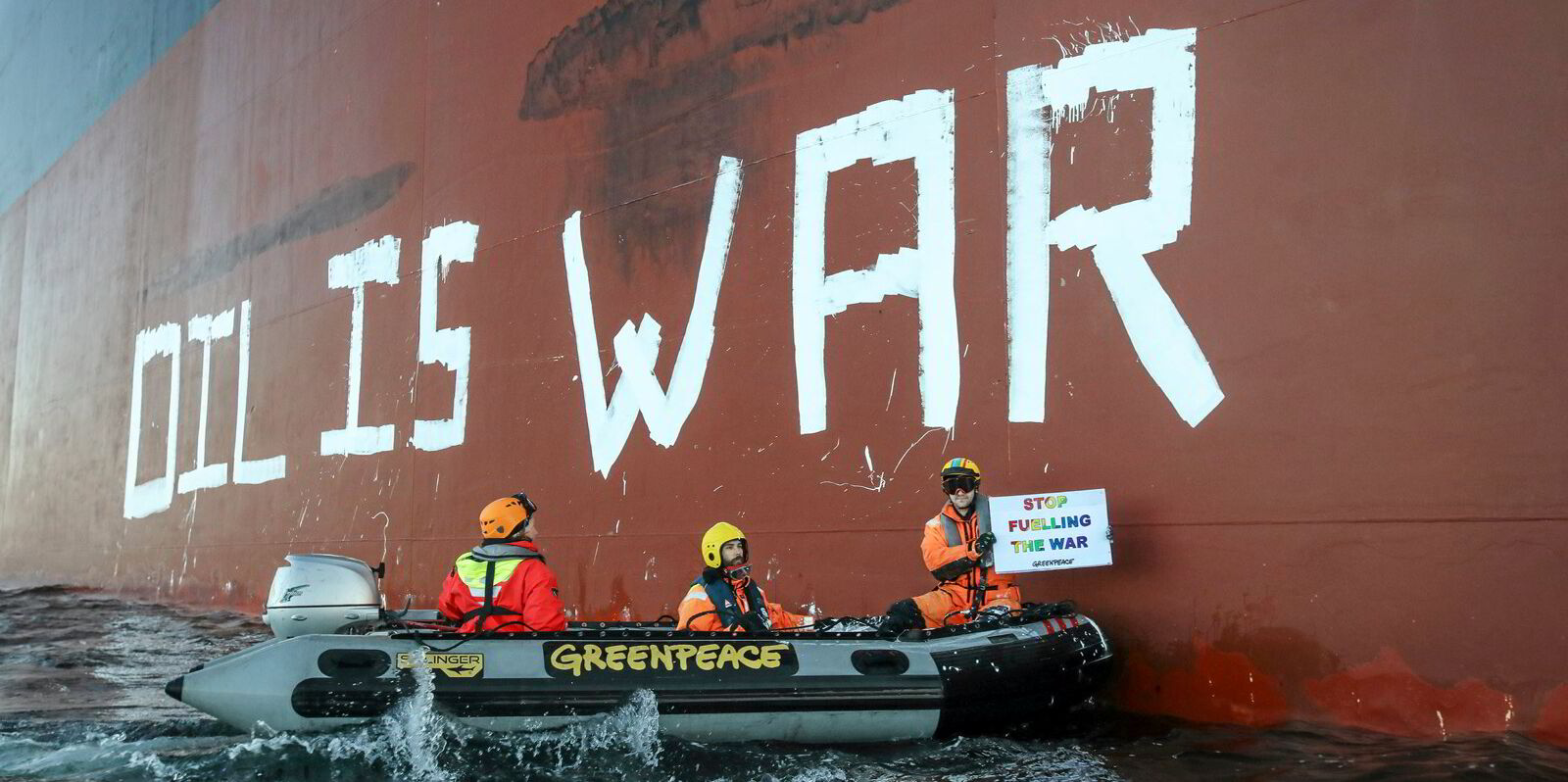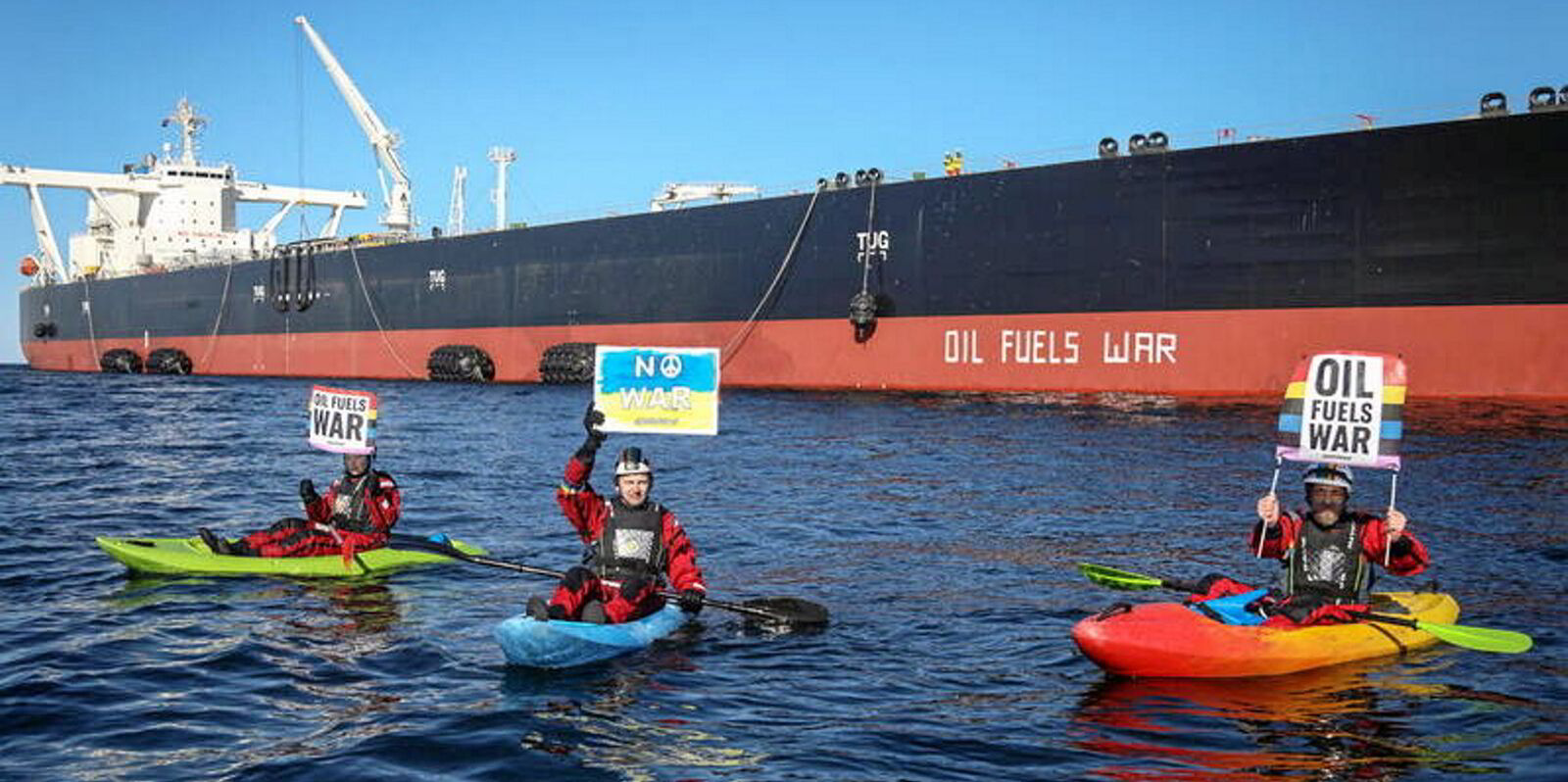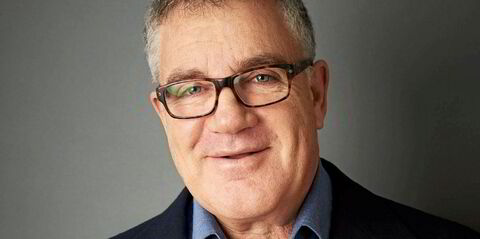Tankers that hauled oil from Russia’s biggest Baltic oil port in August changed hands for more than $1.5bn after the invasion of Ukraine, highlighting the significant profits made by European shipowners from selling ageing vessels that ended up in the shadow fleet.
Of the 60 crude and product tankers loading at Primorsk alone last month, 70% changed hands since February 2022 — one of them three times — as shipowners cashed in on soaring demand for elderly tonnage to keep Russian oil exports moving.
The bumper market for elderly secondhand tankers has helped some European shipowners to renew fleets and write down debt after receiving top prices for ships otherwise nearing scrappage.
The sales have continued during 2024, albeit at a slower pace, exposing the limitations of European Union policies to stop tankers moving to the shadow fleet and hauling Russian oil above the G7’s oil price cap.
The data also shows in stark detail the significant shift in ownership of vessels used in the Russian trade.
While the top-three sellers of the ships that loaded in Primorsk in August were from Greece, Norway and the UK, the biggest buyers were from the United Arab Emirates, Seychelles and Turkey, according to TradeWinds analysis based on Kpler ship and cargo tracking data and VesselsValue and Equasis ownership data.
The 42 ships that changed hands and lifted oil from Primorsk last month had an average age of 18 years. Oil majors typically avoid tankers aged over 15 years.
There is no suggestion that the shipowners have broken laws or regulations.
One owner said deals only went through after detailed due diligence on the new buyers using top-tier lawyers and escrow agents.
The US has said that one aim of the price cap regime was to inflict “tremendous costs” on the Kremlin by investing “massively” in a shadow fleet.
“Buying tankers makes it harder for the Kremlin to buy tanks,” acting assistant secretary for economic policy Eric Van Nostrand said in October.
The snapshot study — based solely on activity at one port in one month — showed that Greece’s Delta Tankers was the most active seller, disposing of three tankers that ended up loading oil from Primorsk in August.
VesselsValue data shows the three were sold in December 2022 to Radiating World Shipping Services, a Dubai-based company hit by UK sanctions the following year.

Phenomenal price
They were part of a quartet of aframaxes that sold for a combined $140m to the then-unknown buyer — a price described at the time as “phenomenal” by brokers.
The 111,000-dwt trio Azure Celeste (ex-Delta Sailor), Kudos Stars (ex-Delta Captain, both built 2005) and Andaman Skies (ex-Delta Pioneer, built 2004) are now operated by Dubai-based companies and have specialised in hauling Russian crude since the sale.
Several other companies have sold two ships that traded out of Primorsk in August, including the UK’s Union Maritime, Norway’s Viken and Tsakos Energy Navigation, the data shows.
The sales also highlight their increased complexity following waves of sanctions programmes imposed by G7 countries.
The highest-price ship was the 112,800-dwt Aldebaran (built 2019) sold at auction in Gibraltar in March to Greece’s Eurotankers for $75m.
The ship, then named Aurviken, was part-owned by Norway’s Viken in a joint venture. The vessel had to be sold because one of the ultimate shareholders of its partner was JSC State Transport Leasing Co, better known as GTLK, which was placed on Western sanctions lists following the invasion of Ukraine.
Union Maritime sold two ships in June 2022, six months before the EU import ban and oil price cap scheme were put in place.
The price cap was aimed at keeping Russian oil flowing with the assistance of Western shipping services, albeit at suppressed prices.
One Union Maritime ship went to the UAE’s Fractal Shipping, which was designated by the UK in February.
The company, which was liquidated as a result of the listing, has always denied breaching Western sanctions.
Union Maritime sold the 113,782-dwt Tartan (built 2005) along with a second ship, not part of the TradeWinds tally, for $45m in an en-bloc deal.
The vessels were acquired from oil major BP for $13.3m each, giving Union Maritime a healthy profit, according to a TradeWinds report of the deal.
Fractal renamed the Tartan as the Vaigai and reportedly sold it again in June this year to another UAE-based operation, with an estimated market value of $40m, according to VesselsValue.
TEN sold two suezmaxes for a total of nearly $80m to Seychelles-registered companies in November 2023 and May this year that later lifted from Primorsk in August.
The 164,600-dwt Euronike (built 2005), since renamed Prisma, was the oldest suezmax in the TEN fleet when it was sold in May.
The Euronike was one of several ships with European ties that were sold after the EU introduced rules designed to limit the sale of vessels.
Another was the 105,188-dwt aframax Berra (built 2005), sold in March as the Zuma by TMS Tankers to single-ship owner Opulent Haven Corp of the Seychelles.
In December, the EU announced it was banning sales of tankers to Russian owners, or for use in Russia unless the member state gave authorisation for the deal.
Sellers of tankers to third countries other than Russia had only to notify national authorities. Details of the notifications would be compiled by the EU.
The EU said the move was designed to “bring more transparency to this market”, in particular for secondhand tankers that could be used to evade the import ban on Russian oil and the G7 price cap.
The cap for crude has remained at $60 a barrel since December 2022, while the caps for products are $100 and $45 since February 2023.
Urals is the main crude grade trading out of Primorsk. Urals traded above $70 throughout August, reaching a high of $76.90 per barrel, according to New York-based Trading Economics.
An EU spokesperson declined to share details on notifications of tanker sales received by the European Commission.
Malin Hogberg, a sanctions expert and specialist counsel at Swedish law firm WERKS, said there was little detail about the rules on notifying tanker sales.
She said it was not clear which government department shipowners in Sweden were supposed to report to in the event of a sale.
Russia connection
Hogberg said sales directly from EU-linked shipowners into Russia were unlikely to happen. Owners would pull out of deals if any direct link was uncovered during due diligence checks.
It meant that sellers would be subject to the weaker rules surrounding the sale of tankers into third countries, even if the ships ultimately ended in the shadow Russian fleet.
“I would expect that anyone selling tankers … will be going through these hoops but it’s unlikely that they will discover any Russian connection,” she said.

EU member states are responsible for enforcing EU sanctions, while the EU bureaucracy provides guidance and monitoring, an EC spokesperson said.
“The commission is in regular exchange with national authorities on all matters concerning the implementation of EU sanctions,” the spokesperson said.
Craig Kennedy, a Russia energy and finance expert and associate at Harvard University’s Davis Center, said the sale of tankers had slowed since the initial burst of activity from late 2022 and into 2023.
He said buyers had become edgy because they did not want to risk sinking millions into a ship only for it to be hit by sanctions and become locked out of the market.
More than 60 tankers have been blacklisted by the US, UK and EU sanctions since October.
“Anyone who’s spending $40m on a 20-year-old aframax and doesn’t have either concessional financing from Moscow or a really low cost of capital and a high appetite for risk is going to be at a real disadvantage,” he said.
“They [Moscow] are continuing to grow it [the dark fleet] gradually in the first half of 2024 but at a much slower pace.”
European shipowners were contacted for comment. Of those that responded, Union Maritime said it rigorously complied with UK and other sanctions regimes including over vessel sales.
Concerning the two ships sold that later loaded at Primorsk in August under new owners, the company said it had carried out detailed checks on buyers and worked with top-tier law firms and escrow agents.
“Those buyers satisfied those checks and the transactions were compliant in all respects with applicable law,” the company said.
TEN said that it “always adheres to all applicable regulations and procedures of the competent authorities”.
Read more
- Russia sends elderly non-ice-class LNG carrier through Arctic
- Tanker now ‘adequately’ insured after Indonesia grounding
- Crackdown on risky ships could be vastly improved with data modelling rethink, say researchers
- Too hot to handle: Why the owner of a sanctioned tanker is being given the cold shoulder by recyclers
- US sanctions seven shadow LNG carriers linked to Russian Arctic business




